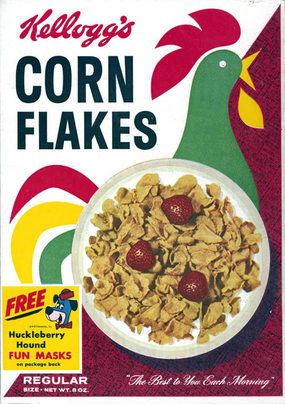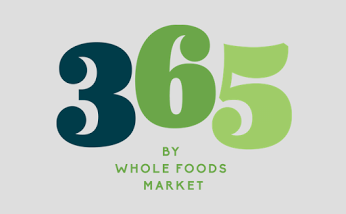Consumers Across the Nation are Boycotting Kellogg’s Foods:
Here’s Why Kellogg’s corn flakes and other food-like products that the company makes are full of Bt Corn. The EPA has registered Bt corn as a pesticide since the crop makes its own insecticide. (Reg. #524-581 and 68467-7) Bt corn has been shown to cause serious health problems.
“. . .a toxin called Bacillus thuringiensis or Bt, designed to attack a corn pest called the corn rootworm. Rats fed Mon 863 developed several reactions, including those typically found with allergies (increased basophils), in response to infections, toxins and various diseases including cancer (increased lymphocytes and white blood cells), and in the presence of anemia (decreased reticulocyte count) and blood pressure problems (decreased kidney weights).”
The makers of Bt corn, primarily Monsanto and Syngenta, are responsible for selling this food-stuff to companies like Kellogg’s, but they have the choice to source their corn from organic farmers, and simply don’t.Syngenta’s website says that Bt corn can ‘make a farmer’s life easier,’ but this has also been proven to be grossly false. Farmers in the Philippines who sowed Bt seeds went bankrupt.
“An estimated 270,000 small-hold farmers in the Philippines are being forced to grow GM corn and ending up in debt as a result.
These are the findings of a recent study by CI member IBON and MASIPAG, a farmer-led network of people’s organisations, non-government organisations and scientists.”
Indian farmers are committing suicide, too, specifically due to Bt seed.
“Globalization and monopoly have forced farmers to buy GM seeds and since GM crops have become pests’ resistance, the farmers have no choice but to purchase Monsanto’s pesticide. Sometimes GM crops fail over and over again; GM crops also do not grow back again next year and every year farmers have to buy new seeds. The Daily Mail has called the continuous suicide of Indian farmers a “genocide” in human history. What’s really disturbing is that often time farmers commit suicide by drinking the insecticide shipped to them by Monsanto.”
So, to summarize, Kellogg’s company is using GMO Bt corn and other GMO crops in their food that they then sell the world to the tune of at least $12 billion annually, and in the process they are poisoning people and bankrupting farmers. What’s more, Kellogg’s foods are full of GMO sugarbeets – another reason consumers are joining the boycott. Is it really worth that morning bowl of cereal?
_______________________________________________________________________________
Here’s Why Kellogg’s corn flakes and other food-like products that the company makes are full of Bt Corn. The EPA has registered Bt corn as a pesticide since the crop makes its own insecticide. (Reg. #524-581 and 68467-7) Bt corn has been shown to cause serious health problems.
“. . .a toxin called Bacillus thuringiensis or Bt, designed to attack a corn pest called the corn rootworm. Rats fed Mon 863 developed several reactions, including those typically found with allergies (increased basophils), in response to infections, toxins and various diseases including cancer (increased lymphocytes and white blood cells), and in the presence of anemia (decreased reticulocyte count) and blood pressure problems (decreased kidney weights).”
The makers of Bt corn, primarily Monsanto and Syngenta, are responsible for selling this food-stuff to companies like Kellogg’s, but they have the choice to source their corn from organic farmers, and simply don’t.Syngenta’s website says that Bt corn can ‘make a farmer’s life easier,’ but this has also been proven to be grossly false. Farmers in the Philippines who sowed Bt seeds went bankrupt.
“An estimated 270,000 small-hold farmers in the Philippines are being forced to grow GM corn and ending up in debt as a result.
These are the findings of a recent study by CI member IBON and MASIPAG, a farmer-led network of people’s organisations, non-government organisations and scientists.”
Indian farmers are committing suicide, too, specifically due to Bt seed.
“Globalization and monopoly have forced farmers to buy GM seeds and since GM crops have become pests’ resistance, the farmers have no choice but to purchase Monsanto’s pesticide. Sometimes GM crops fail over and over again; GM crops also do not grow back again next year and every year farmers have to buy new seeds. The Daily Mail has called the continuous suicide of Indian farmers a “genocide” in human history. What’s really disturbing is that often time farmers commit suicide by drinking the insecticide shipped to them by Monsanto.”
So, to summarize, Kellogg’s company is using GMO Bt corn and other GMO crops in their food that they then sell the world to the tune of at least $12 billion annually, and in the process they are poisoning people and bankrupting farmers. What’s more, Kellogg’s foods are full of GMO sugarbeets – another reason consumers are joining the boycott. Is it really worth that morning bowl of cereal?
_______________________________________________________________________________
Boycott Kellogg's!
Stop Monsanto's GE Sugar Beets!
The Dangers of GE Sugar Beets
Why a boycott? Why Kellogg's?
Call Kellogg's: 800-962-1413
Write Your Local Newspapers
OCA's GE Sugar Leaflet
OCA's Kellogg's Boycott Petition
GMO News Archives
Action!
Kellogg's Loves GMO Contamination of Organic - Boycott Morningstar Farms, Kashi, Bear Naked, and Gardenburger! Organic Consumers Association and allies warned Kellogg's, if they used sugar from genetically engineered sugar beets in their foods, they would face a consumer boycott.
Kellogg's responded, claiming that, even though they don't use genetically engineered ingredients in Europe, in the U.S., "consumer concerns about the usage of biotech ingredients in food production are low."
Now, Kellogg's is telling consumers that they might as well eat their GMO-laced products because, "Even organic ingredients can contain biotech ingredients due to cross-pollination."
This is an outrageous lie!
Tell Kellogg's You're Joining the Boycott!
The Dangers of Genetically Engineered Sugar BeetsGenetically modified foods hit store shelves in the 1990's and now just about any food that isn't certified organic, and contains milk, soy, cotton, canola, corn, squash, papaya, sugar or alfalfa, contains genetically modified ingredients. Non-organic meat, fish and eggs are likely to be from animals raised on genetically engineered feed and could be the product of cloned animals.
Genetically engineered sugar beets have been grown commercially in the US since 2008. That year about half of the crop was genetically engineered. The industry projected that about 90 percent of sugar beets would be genetically engineered by 2009. So, with 50% of the sugar supply from sugar beets, most of us have probably already been exposed to genetically engineered sugar.
Monsanto wouldn't be able to accomplish this lightning-fast market saturation without the monopolistic power it gained by buying up seed companies. While industrial producers say they like the way the herbicide-resistant crop saves labor, they are wary of the power Monsanto has to restrict their choices and raise prices.
While Monsanto clearly plans to make its GE sugar beets farmers' only option, experts said that the seed companies would have enough non-GMO seed if the court decided to follow up its ruling that GE sugar beets were approved illegally with a moratorium.
If Monsanto's GE sugar beets end up winning out, the other concern farmers will have is whether Monsanto's sugar beet seed will continue to be effective. Monsanto's supposedly Roundup-resistant sugar beets have been known to die in alarming numbers after having been sprayed with Roundup. Another danger is that the Roundup Ready sugar beets will transfer their resistance to wild relatives, spawning super weeds. In recent years, Europe's sugar production was devastated by the natural hybridization of the sea beet weed and the sugar beet.
GE sugar beets are dangerous for people, pollinators and the environment. The risks of GE sugar beets are enhanced by the fact that they contaminate non-GMO crops. Just to name one example, GE sugar beet specklings were inexplicably found in potting soil mix sold to gardeners at a landscape supply business.
GE sugar beet production significantly reduces the number of bees and butterflies in beet fields.
GE sugar beets are designed to withstand strong doses of Monsanto's controversial broad spectrum Roundup herbicide. Studies indicate farmers planting Roundup Ready crops spray large amounts of the herbicide, contaminating both soil and water. Farmers planting GE sugar beets are told they may be able to apply the herbicide up to five times per year.
Roundup, also known as glyphosate, is linked to cancer. Monsanto has successfully lobbied to increase human exposure to its carcinogen. When it first commercialized its Roundup Ready crops, Monsanto applied for and was granted an increase in the level of herbicide residue allowed to remain on the crop.
Stop Monsanto's GE Sugar Beets!
The Dangers of GE Sugar Beets
Why a boycott? Why Kellogg's?
Call Kellogg's: 800-962-1413
Write Your Local Newspapers
OCA's GE Sugar Leaflet
OCA's Kellogg's Boycott Petition
GMO News Archives
- 02/11/14 - GMO Soybeans Are Bad for Mexico's Beekeepers
- 10/02/12 - Study: Pesticide use Ramping Up as GMO Crop Technology Backfires
- 02/27/12 - Genetically Engineered Food Damaging to Humans
- 02/20/12 - Study Says Insecticide Used with GM Corn Highly Toxic to Bees
- 06/07/11 - Public Kept in the Dark on Roundup Link with Birth Defects
- 06/06/11 - Industry Financing Interferes with Studies on GM Food Safety
- 04/12/11 - Bt Toxin Found in Blood of Pregnant Women and Fetuses
- 04/09/11 - GMOs Linked to Organ Disruption in 19 Studies
- 01/20/11 - Health Concerns Raised Over Titanium Dioxide Nanoparticles in Swiss-French Study
- 11/02/10 - Hazards of GMOs: Agrobacterium-Mediated Transformation
- More GE Science Headlines>>
Action!
Kellogg's Loves GMO Contamination of Organic - Boycott Morningstar Farms, Kashi, Bear Naked, and Gardenburger! Organic Consumers Association and allies warned Kellogg's, if they used sugar from genetically engineered sugar beets in their foods, they would face a consumer boycott.
Kellogg's responded, claiming that, even though they don't use genetically engineered ingredients in Europe, in the U.S., "consumer concerns about the usage of biotech ingredients in food production are low."
Now, Kellogg's is telling consumers that they might as well eat their GMO-laced products because, "Even organic ingredients can contain biotech ingredients due to cross-pollination."
This is an outrageous lie!
- For one, Kellogg's admits it doesn't use GMOs in the products it sells in Europe (which doesn't tolerate GMO contamination of imported foods).
- More importantly, while it is true that GMOs threaten the organic seed supply with contamination, the USDA National Organic Program rules include residue testing requirements that would prevent contaminated products from being sold as organic.
Tell Kellogg's You're Joining the Boycott!
The Dangers of Genetically Engineered Sugar BeetsGenetically modified foods hit store shelves in the 1990's and now just about any food that isn't certified organic, and contains milk, soy, cotton, canola, corn, squash, papaya, sugar or alfalfa, contains genetically modified ingredients. Non-organic meat, fish and eggs are likely to be from animals raised on genetically engineered feed and could be the product of cloned animals.
Genetically engineered sugar beets have been grown commercially in the US since 2008. That year about half of the crop was genetically engineered. The industry projected that about 90 percent of sugar beets would be genetically engineered by 2009. So, with 50% of the sugar supply from sugar beets, most of us have probably already been exposed to genetically engineered sugar.
Monsanto wouldn't be able to accomplish this lightning-fast market saturation without the monopolistic power it gained by buying up seed companies. While industrial producers say they like the way the herbicide-resistant crop saves labor, they are wary of the power Monsanto has to restrict their choices and raise prices.
While Monsanto clearly plans to make its GE sugar beets farmers' only option, experts said that the seed companies would have enough non-GMO seed if the court decided to follow up its ruling that GE sugar beets were approved illegally with a moratorium.
If Monsanto's GE sugar beets end up winning out, the other concern farmers will have is whether Monsanto's sugar beet seed will continue to be effective. Monsanto's supposedly Roundup-resistant sugar beets have been known to die in alarming numbers after having been sprayed with Roundup. Another danger is that the Roundup Ready sugar beets will transfer their resistance to wild relatives, spawning super weeds. In recent years, Europe's sugar production was devastated by the natural hybridization of the sea beet weed and the sugar beet.
GE sugar beets are dangerous for people, pollinators and the environment. The risks of GE sugar beets are enhanced by the fact that they contaminate non-GMO crops. Just to name one example, GE sugar beet specklings were inexplicably found in potting soil mix sold to gardeners at a landscape supply business.
GE sugar beet production significantly reduces the number of bees and butterflies in beet fields.
GE sugar beets are designed to withstand strong doses of Monsanto's controversial broad spectrum Roundup herbicide. Studies indicate farmers planting Roundup Ready crops spray large amounts of the herbicide, contaminating both soil and water. Farmers planting GE sugar beets are told they may be able to apply the herbicide up to five times per year.
Roundup, also known as glyphosate, is linked to cancer. Monsanto has successfully lobbied to increase human exposure to its carcinogen. When it first commercialized its Roundup Ready crops, Monsanto applied for and was granted an increase in the level of herbicide residue allowed to remain on the crop.
_______________________________________________________________________________




